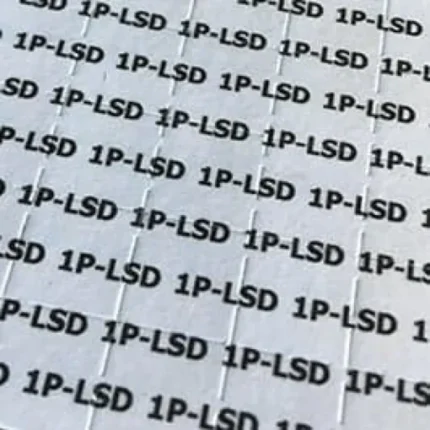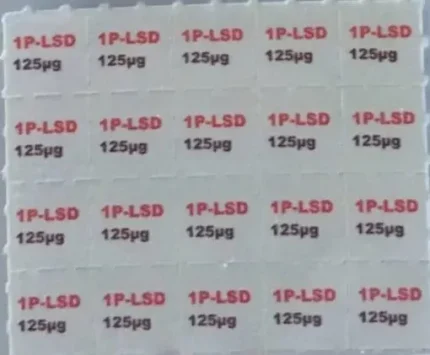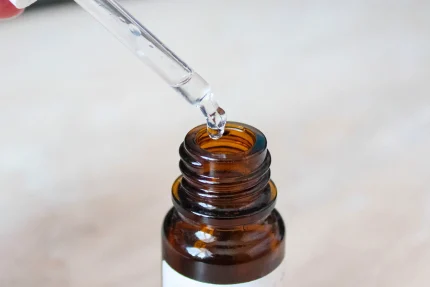LSD
Authentic LSD for Sale Online – Only At Buy Shrooms Market
In the quest for understanding and exploring the realms of consciousness, Lysergic Acid Diethylamide, more commonly known as LSD, has been a subject of both intrigue and controversy. While some online searches may revolve around terms like “buy LSD online” or “LSD for sale,” it’s imperative to approach this topic with a focus on education, safety, and adherence to legal standards. LSD, a potent hallucinogenic drug, has played a multifaceted role in cultural, medical, and legal narratives worldwide.
Brief Overview of LSD
LSD is a synthetic chemical made from a substance found in ergot, a fungus that infects rye. Discovered in 1938 by Swiss chemist Albert Hofmann, LSD is known for its potent psychoactive properties, which can cause alterations in perception, mood, and thought when ingested. Despite its synthesis for medical research, LSD became popular as a recreational drug in the 1960s, influencing various cultural movements but also leading to widespread controversy and legal crackdowns.
Historical Context and Uses
Historically, LSD was initially explored for its potential therapeutic applications, particularly in psychiatry. Its ability to produce profound psychological effects led researchers to investigate its use in treating mental health disorders, including depression, anxiety, and addiction. The 1950s and 1960s saw LSD being used experimentally to enhance creativity, facilitate deep psychotherapeutic sessions, and even, in some cases, treat alcoholism. However, the recreational use of LSD during the counterculture movement of the 1960s, along with concerns about its safety and potential for abuse, led to its classification as a Schedule I substance in the United States and its prohibition in many other countries.
Disclaimer About the Legal Status and Intent of the Article
It’s crucial to state that the discussion around “buying LSD online” or looking for “LSD for sale” must be framed within the context of legal restrictions, safety concerns, and the pursuit of knowledge. The legal status of LSD remains stringent in many parts of the world, where its manufacture, distribution, possession, and use are heavily regulated or outright banned. This article does not endorse or promote the illegal purchase or use of LSD. Instead, it aims to provide a comprehensive overview of LSD from historical, cultural, and legal perspectives, encouraging informed, responsible dialogue and understanding.
What is LSD?
Lysergic Acid Diethylamide, more commonly known as LSD, stands at the intersection of cultural lore and scientific inquiry, embodying a complex legacy that spans decades. This potent hallucinogenic substance has intrigued and confounded the worlds of medicine, law, and users alike with its profound effects on the human psyche.
Definition and Chemical Makeup
LSD is a synthetic chemical made from substances found in ergot, a fungus that grows on rye and other grains. At its core, LSD is known for its strong hallucinogenic effects, which can alter perception, thoughts, and feelings. It is one of the most powerful mood-changing chemicals, requiring only minute doses to cause effects.
History of Discovery and Medical Research
The story of LSD began in 1938 when Swiss chemist Albert Hofmann first synthesized the compound while researching lysergic acid derivatives in a pharmaceutical laboratory. It wasn’t until five years later, in 1943, that Hofmann discovered its hallucinogenic properties by accident. This discovery sparked decades of research into its potential therapeutic uses, particularly in psychiatry. Throughout the 1950s and 1960s, LSD was extensively studied for its possible benefits in treating mental health disorders such as depression and anxiety, as well as for its use in psychotherapy sessions to enhance self-understanding and healing. However, due to widespread recreational use and the cultural upheaval of the 1960s, LSD research faced significant restrictions and was largely halted by the early 1970s.
Current Legal Status Around the World
Today, LSD is classified as a Schedule I substance under the United Nations Convention on Psychotropic Substances. This classification indicates that it is considered to have a high potential for abuse, no currently accepted medical use in treatment, and a lack of accepted safety for use under medical supervision. As a result, the manufacture, distribution, and possession of LSD are controlled strictly in most countries around the world. Despite this, recent years have seen a resurgence in scientific interest and research into the potential therapeutic benefits of psychedelics, including LSD, for various mental health conditions. This new wave of research is challenging long-standing legal and cultural perceptions of LSD and its use.
Type Of LSD
Exploring the world of Lysergic Acid Diethylamide (LSD) reveals a spectrum of forms and compositions, each with unique characteristics. This diversity underscores the importance of understanding what distinguishes pure LSD from adulterated products, as well as recognizing the various forms LSD can take. Knowledge is power, especially when it pertains to substances with profound psychological effects. Here, we delve into the types of LSD, offering insights into how to identify them and understand their differences.
Pure LSD vs. Adulterated Products
At its core, pure LSD is a clear or white, odorless, and slightly bitter-tasting substance. However, it’s not uncommon for LSD to be mixed or “cut” with other substances, which can alter its potency and potentially introduce risks. Adulterated LSD may contain other drugs or chemicals that can affect the user’s experience, making it crucial for individuals to be aware of the signs of purity versus adulteration. Pure LSD typically induces a more predictable and controllable experience, whereas adulterated products can lead to unexpected and sometimes dangerous effects.
Forms of LSD
LSD is known for its versatility in form, adapting to various methods of ingestion. The most common forms include:
- Blotter Paper: Perhaps the most iconic form, LSD is often applied to sheets of perforated blotter paper, which are then torn into small squares. Each square, or “tab,” contains a dose of LSD. Blotter paper is favored for its ease of use and discreet nature.
- – 1P-LSD
- – 1P-LSD (125mcg) Blotter For Sale
- – LSD Blotter Papers
- Liquid: Pure LSD can be found in a liquid form, which is colorless and can be applied to various items, including sugar cubes or more discreetly on small items like a piece of blotter paper or a candy.
– LSD Liquid - Microdots: These are tiny pills or tablets that contain a dose of LSD. Their small size makes them easy to conceal but can sometimes make dosage determination challenging.
- Gel Tabs (Window Panes): LSD in gelatin form is another method of ingestion. These gel tabs can be colorful and translucent, resembling small pieces of gelatin dessert. They’re often considered to be a purer form of LSD.
- – LSD Gel Tabs
How to Identify Different Types
Identifying the different types of LSD involves a keen eye for detail and some knowledge of what to look for:
- Blotter Paper: Check for perforations and designs. Many blotter papers feature intricate artwork, which can sometimes indicate the source but not necessarily the purity.
- Liquid: Pure liquid LSD is clear and should not have a discernible color. It’s usually stored in small dropper bottles or vials.
- Microdots: Due to their size, microdots can be harder to identify without prior knowledge. They are typically round, small, and pill-like.
- Gel Tabs: Look for small, square pieces of gelatin that are often colorful. They have a jelly-like consistency and are slightly larger than microdots.
While understanding the types of LSD and their forms is valuable, it’s crucial to approach this knowledge with a sense of responsibility and awareness of the legal and health implications associated with LSD use. Always prioritize safety, legality, and informed decision-making when considering the use of any substance.
This content is designed to inform and educate, providing a comprehensive overview of the types of LSD, distinguishing between pure and adulterated products, and offering guidance on identifying its various forms.
Advantages of LSD Use: A Controversial Overview
The discourse surrounding Lysergic Acid Diethylamide (LSD) is fraught with controversy, largely due to its complex history, potent effects, and legal status worldwide. Yet, amidst the debates, there exists a burgeoning body of scientific research and anecdotal evidence pointing to potential benefits of LSD use, particularly in controlled, therapeutic settings. This article navigates the contentious terrain of LSD’s advantages, emphasizing the substance’s therapeutic potential, its impact on creativity and problem-solving, and the ethical considerations surrounding its use.
Therapeutic Potential and Psychological Research
In recent years, the medical community has shown a renewed interest in the potential therapeutic benefits of psychedelics, including LSD. Controlled studies have explored LSD’s efficacy in treating a variety of mental health disorders, including depression, anxiety, and PTSD. Research indicates that LSD, when administered in a controlled, therapeutic context, can offer profound insights into the patient’s psyche, facilitating breakthroughs that might take years to achieve through traditional psychotherapy alone. These sessions, often guided by trained therapists, leverage LSD’s ability to dissolve the ego and foster a heightened state of openness, enabling individuals to confront and process deeply buried emotions and traumas.
Creativity and Problem-Solving Enhancements
Beyond its therapeutic applications, LSD is reputed to enhance creativity, innovation, and problem-solving abilities. Historical accounts and recent studies alike recount how individuals under the influence of LSD experience a breakdown in conventional thought patterns, leading to novel connections and perspectives. This cognitive flexibility can be particularly beneficial in fields that demand creative insight, such as the arts, science, and technology. Notable figures in various disciplines have credited LSD with contributing to groundbreaking discoveries and artistic achievements, underscoring the drug’s potential to unlock new realms of thought.
Ethical Considerations and Ongoing Research
The exploration of LSD’s advantages is not without ethical dilemmas. The primary concern revolves around the drug’s powerful effects on the mind, raising questions about consent, mental health risks, and the potential for abuse. Ethical research practices necessitate stringent controls, informed consent, and a clear therapeutic intent to mitigate these risks. Moreover, the illegal status of LSD in many countries poses significant barriers to research, limiting scientific understanding and the potential for therapeutic applications.
The ongoing research into LSD’s benefits is part of a larger psychedelic renaissance, challenging preconceived notions about these substances. As societal attitudes shift and scientific inquiry advances, the dialogue around LSD is becoming increasingly nuanced, reflecting a collective desire to explore its potential responsibly.
Risks Associated with LSD
The discussion surrounding Lysergic Acid Diethylamide (LSD) often evokes a spectrum of opinions, reflecting its complex nature and the myriad experiences individuals have with the substance. While there’s growing interest in the potential benefits of LSD, particularly in therapeutic settings, it’s crucial to acknowledge and understand the risks associated with its use. This article aims to provide a balanced perspective on the short-term effects, long-term risks, potential for abuse, and the legal implications of LSD, ensuring a comprehensive overview for those seeking to understand this potent psychedelic.
Short-term Physical and Psychological Effects
LSD is renowned for its powerful hallucinogenic properties, which can significantly alter an individual’s perception, mood, and cognitive processes. The short-term effects of LSD are varied and can be unpredictable, largely dependent on the dose, the user’s mental state, and the environment in which it’s consumed. Physically, users may experience changes in body temperature, heart rate, blood pressure, and dizziness. Psychologically, the effects are more profound, ranging from vivid hallucinations and altered sensory experiences to profound shifts in consciousness.
While many seek LSD for these mind-altering experiences, they’re not without risks. Users may encounter distressing hallucinations, anxiety, paranoia, and a loss of control over their thoughts and emotions, commonly referred to as a “bad trip.” These experiences can be profoundly unsettling and, in some cases, lead to dangerous behaviors or traumatic psychological effects.
Long-term Risks and Potential for Abuse
The long-term use of LSD can have several psychological implications. While physical dependence on LSD is uncommon, psychological dependence can occur. Users may seek out the drug repeatedly to escape reality or relive the profound experiences it can induce, leading to potential abuse.
Furthermore, persistent use of LSD has been associated with long-lasting changes in perception and mood, even after the drug has been discontinued. Some individuals report experiences of flashbacks or Hallucinogen Persisting Perception Disorder (HPPD), where users relive aspects of their LSD experiences without warning. Though rare, these conditions can significantly impact an individual’s quality of life.
Legal Risks and Penalties for Possession and Distribution
LSD’s legal status is another critical aspect to consider. In many countries, LSD is classified as a controlled substance, making its possession, distribution, and manufacture illegal. The penalties for these offenses can be severe, ranging from fines to imprisonment, depending on the jurisdiction and the scale of the offense. The legal risks extend beyond the individual to involve anyone found distributing or manufacturing the substance, often leading to significant legal repercussions.
Moreover, the illegal status of LSD complicates access to pure and safely dosed substances, increasing the risk of consuming adulterated or mislabeled products, which can have unforeseen and potentially dangerous effects.
Storing LSD Properly
In the realm of psychedelics, Lysergic Acid Diethylamide (LSD) stands out for its potent effects and the unique considerations required for its storage. Proper storage is not merely about maintaining the substance’s efficacy; it is also crucial for ensuring safety and longevity. This guide delves into the importance of correct storage for LSD, outlines recommended methods and conditions, and offers safety tips to prevent accidental ingestion, aiming to provide comprehensive insights for individuals seeking to preserve their LSD responsibly.
The Importance of Correct Storage to Maintain Potency
LSD is a remarkably potent substance, with effects noticeable at very low doses. However, it is also relatively fragile, susceptible to degradation from various environmental factors such as light, heat, moisture, and air. Degradation can lead to a significant loss in potency, altering the expected effects and potentially leading to disappointing experiences. Correct storage is thus essential to preserve LSD’s chemical integrity and ensure its expected potency over time.
Recommended Storage Methods and Conditions
To maintain LSD’s potency, adhering to specific storage conditions is crucial. The following recommendations are designed to minimize exposure to degrading elements:
- Avoid Light: Light, especially UV light, can rapidly degrade LSD. Store it in an opaque container or wrap it in aluminum foil to block out light.
- Control Temperature: High temperatures can accelerate degradation. LSD should be stored in a cool, stable environment. While not always necessary, refrigeration can be beneficial, provided the substance is protected from moisture.
- Minimize Air Exposure: Oxygen can also contribute to the breakdown of LSD. Keeping it in an airtight container helps preserve its potency.
- Protect from Moisture: Moisture is perhaps the most critical factor to avoid, as it can significantly affect LSD’s stability. Use airtight containers and consider including a desiccant packet to absorb any excess moisture.
Safety Tips to Prevent Accidental Ingestion
Beyond preserving LSD’s potency, safety is a paramount concern, especially to prevent accidental ingestion:
- Label Clearly: Always label the storage container with non-ambiguous markers to ensure it is not mistaken for something safe for unintended use.
- Secure Storage: Keep LSD in a secure, locked location, out of reach of children and pets. This not only prevents accidental ingestion but also reduces the risk of unauthorized access.
- Educate Your Household: If you live with others, it’s important to educate them about the substance’s presence (as appropriate) and the importance of its careful handling to avoid accidents.
Navigating the complex landscape of Lysergic Acid Diethylamide (LSD) use requires a nuanced understanding of legality, safety, and harm reduction practices. This guide offers insights into the responsible use of LSD, focusing on jurisdictions where it’s legal for therapeutic purposes. Emphasizing safety and informed practices, we delve into guidelines for therapeutic settings, harm reduction strategies, and the pivotal role of set and setting in shaping the LSD experience.
Emphasis on Legality and Safety
Before considering LSD use, it’s paramount to understand its legal status within your jurisdiction. LSD is classified as a Schedule I substance under international treaties, making it illegal for recreational use in many countries. However, recent shifts have seen some regions exploring its therapeutic potential under controlled, clinical settings. Ensuring that your engagement with LSD is legal is the first step in responsible use.
Guidelines for Use in Therapeutic Settings
In places where LSD can be used therapeutically, strict guidelines govern its administration. These settings often involve the following protocols:
- Supervision by Qualified Professionals: LSD should only be used under the guidance of healthcare professionals trained in psychedelic therapy. This ensures the safety and well-being of the participant throughout the experience.
- Pre-Session Assessments: Thorough psychological assessments are conducted to determine suitability for LSD therapy. This step identifies potential risks and ensures that the individual is a good candidate for the treatment.
- Controlled Environment: Therapeutic sessions with LSD are conducted in a safe, comfortable environment designed to foster a positive experience. The setting is meticulously prepared to support the individual’s psychological needs.
Harm Reduction Strategies
Harm reduction is a set of practical strategies aimed at minimizing negative health outcomes and ensuring safety. When it comes to using LSD safely, the following harm reduction tips are crucial:
- Start with Low Doses: Especially for first-time users, starting with a low dose allows the individual to gauge their sensitivity to LSD. This cautious approach can prevent overwhelming experiences.
- Avoid Mixing Substances: Combining LSD with other substances, including alcohol and prescription medications, can unpredictably alter effects and increase risks. It’s advisable to use LSD on its own, under supervision.
- Stay Hydrated: While LSD is not known to cause dehydration, maintaining hydration is essential for overall well-being during the experience.
The Importance of Set and Setting
The concept of ‘set and setting’ refers to the individual’s mindset (‘set’) and the physical and social environment (‘setting’) in which LSD is used. Both factors significantly influence the nature of the LSD experience.
- Mindset (Set): An individual’s expectations, mood, and mental health status can profoundly affect their experience with LSD. Entering the experience with a positive, open mindset and specific intentions can guide the journey positively.
- Environment (Setting): A safe, comfortable, and familiar environment contributes to a positive and secure LSD experience. The presence of a trusted guide or therapist can provide reassurance and support.
LSD: Myths vs. Facts
In the swirling vortex of information and misinformation surrounding Lysergic Acid Diethylamide (LSD), distinguishing myth from fact is crucial. This article aims to shed light on common misconceptions about LSD, counteracting them with scientific findings and evidence-based information. Our journey into debunking these myths not only enlightens but also promotes a more informed and less prejudiced understanding of this potent psychedelic substance.
Myth 1: LSD Can Make You Go Permanently Insane
Fact: There is no scientific evidence to support the claim that LSD use directly causes permanent insanity. While LSD can produce powerful changes in perception, mood, and thought, these effects are temporary. However, individuals with a history of mental health issues may experience exacerbations of their symptoms due to the intense psychological effects of LSD. It’s essential to approach the use of LSD with caution, especially for those with a predisposition to mental health disorders.
Myth 2: LSD Is Highly Addictive
Fact: Contrary to popular belief, LSD is not considered addictive in the same way substances like opioids or nicotine are. LSD does not produce compulsive drug-seeking behavior, nor does it cause physical withdrawal symptoms. However, like many substances, it can lead to psychological dependence, where users may seek to repeat their experiences due to the profound insights or feelings induced by the drug.
Myth 3: LSD Stays in Your Spine Forever
Fact: This myth suggests that LSD crystallizes in the body, specifically in the spine, and can cause flashbacks years after use. Scientifically, this is unfounded. LSD is metabolized and excreted from the body like other substances. While some users report experiencing flashbacks, known as Hallucinogen Persisting Perception Disorder (HPPD), this condition is relatively rare and not well understood, but it’s not caused by LSD remaining in the body.
Myth 4: LSD Is a Dangerous “Hard Drug”
Fact: The categorization of LSD as a “hard” or “dangerous” drug is more a reflection of legal and cultural perceptions than of its actual risk profile. Research on the therapeutic potential of LSD and other psychedelics is expanding, showing promise in treating conditions like depression, anxiety, and PTSD. While not without its risks, particularly in uncontrolled settings, LSD is considered less harmful than many other substances when used responsibly and in moderation.
Myth 5: Microdosing LSD Has No Scientific Basis
Fact: Microdosing, the practice of taking very small, sub-hallucinogenic doses of LSD, has gained popularity for its reported benefits on creativity, productivity, and emotional well-being. While research in this area is still emerging, early scientific studies and anecdotal reports suggest potential benefits. Ongoing research aims to better understand the effects, mechanisms, and therapeutic potential of microdosing.
The Future of LSD: Legal, Medical, and Cultural Perspectives
The discourse surrounding Lysergic Acid Diethylamide (LSD) is experiencing a profound evolution, influenced by new research findings, changing legal frameworks, and shifts in cultural perceptions. This article explores the future of LSD from legal, medical, and cultural viewpoints, aiming to provide a comprehensive overview of the potential pathways and impacts of this powerful psychedelic substance.
Ongoing Research and Potential Medical Uses
The resurgence of interest in the therapeutic potential of psychedelics, including LSD, marks a significant shift in the medical research community. Recent studies focus on LSD’s capacity to treat a range of mental health disorders, such as depression, anxiety, and PTSD. These investigations reveal LSD’s unique ability to alter consciousness and provide profound psychological insights, which, in controlled therapeutic settings, can lead to breakthroughs in mental health treatment. The promise of LSD as a tool for psychotherapy is gaining traction, with ongoing research seeking to unlock its full potential and integrate it into mainstream medical practice responsibly.
Changing Legal Landscapes and Decriminalization Efforts
The legal status of LSD is undergoing reevaluation in several jurisdictions, reflecting a broader reconsideration of drug policies. Movements advocating for the decriminalization of psychedelics have gained momentum, citing the medical and personal benefits of substances like LSD. Some regions have already taken steps to decriminalize or legalize the possession and use of psychedelics for therapeutic purposes, signaling a potential shift towards more permissive laws governing LSD. These changes are not without controversy, but they represent a growing acknowledgment of the need to balance legal enforcement with the potential therapeutic benefits of psychedelics.
Cultural Impact and Shifting Perceptions
Culturally, LSD has long been associated with the counterculture movements of the 1960s and 70s, often portrayed with a mixture of mysticism and caution. Today, the cultural narrative around LSD is shifting, moving away from stigmatization and towards a more nuanced understanding of its effects and potential benefits. This shift is partly driven by the dissemination of information and personal stories that highlight positive experiences with LSD, challenging outdated stereotypes and fears. As public and scientific interest in psychedelics grows, LSD is increasingly seen as a substance with the potential to enrich human experience, foster creativity, and contribute to personal growth.
Frequently Asked Questions About LSD: An Informative Guide
What is LSD? LSD, or Lysergic Acid Diethylamide, is a powerful psychedelic drug known for its potent effects on the mind and perception. Discovered in 1938 by Swiss chemist Albert Hofmann, LSD has been used in various contexts, from psychiatric research to spiritual exploration.
Is LSD legal? The legality of LSD varies significantly around the world. In most countries, LSD is classified as a controlled substance, making its sale, possession, and use illegal. It’s important to familiarize yourself with the laws in your jurisdiction before considering anything related to LSD.
How is LSD used? LSD is commonly ingested orally, either through blotter paper, liquid drops, gel tabs, or microdots. The method of consumption can affect the onset and duration of effects, which can vary widely among individuals.
What are the effects of LSD? LSD users often experience significant alterations in perception, mood, and thought. Visual hallucinations, enhanced emotional experiences, and profound introspective insights are commonly reported. However, effects can be unpredictable and vary based on dosage, individual physiology, and setting.
What are the risks of using LSD? Potential risks include experiencing intense and distressing hallucinations, anxiety, paranoia, and the possibility of a “bad trip.” There’s also the risk of Hallucinogen Persisting Perception Disorder (HPPD), where users experience flashbacks of their LSD trip long after the drug has worn off.
Can LSD have therapeutic benefits? Recent research has explored LSD’s potential in treating various mental health issues, including depression, anxiety, and PTSD. While promising, these studies are in early stages, and LSD remains a controlled substance in many places, limiting its availability for therapeutic use.
How can one reduce the risks associated with LSD? Harm reduction strategies emphasize the importance of “set and setting” — being in a positive state of mind and a safe environment when taking LSD. It’s also crucial to start with a low dose, especially for those trying it for the first time, and to have a sober, trusted individual present.
Can I test LSD for purity? Yes, testing kits are available that can help determine the presence of LSD and identify certain adulterants. These kits, while not 100% foolproof, can offer an added layer of safety for users.
Frequently Asked Questions About LSD For Sale
- What is LSD?
- LSD (Lysergic Acid Diethylamide) is a powerful psychoactive substance known for its psychological effects, which can include altered thoughts, feelings, and awareness of one’s surroundings.
- Is it legal to buy LSD?
- The legality of LSD varies by country. In many places, LSD is classified as a controlled substance, making its sale, purchase, and possession illegal.
- What are the effects of LSD?
- Effects can include visual hallucinations, altered perception of time, and changes in mood and thought. These effects can vary greatly from person to person and even from one experience to another.
- Can LSD be used therapeutically?
- While LSD is currently a Schedule I drug in many countries, prohibiting its use in medical settings, ongoing research is exploring its potential therapeutic benefits, particularly for mental health conditions.
- How long does an LSD trip last?
- The effects of LSD can last anywhere from 6 to 12 hours, depending on various factors including the dose and individual metabolism.
- What should I consider before purchasing LSD?
- Beyond legality, it’s important to consider safety, the reliability of the source, and the potential risks involved with consumption.
- Are there different types of LSD?
- LSD is typically found in forms such as blotter paper, liquid, and gel tabs, but the psychoactive compound is the same in each.
- How can I test the purity of LSD?
- Testing kits are available that can help determine the presence of LSD and certain adulterants, though they may not be able to gauge purity levels precisely.
- What is “set and setting”?
- “Set and setting” refers to the individual’s mindset and the physical and social environment where LSD is consumed, both of which significantly influence the experience.
- Can LSD lead to addiction?
- LSD is not considered addictive in the conventional sense, as it does not cause compulsive drug-seeking behavior. However, individuals can develop a habit of use.
- What are the risks of taking LSD?
- Risks include the potential for a negative psychological reaction, lasting visual disturbances, and legal repercussions.
- How is LSD stored to maintain potency?
- LSD should be stored in a cool, dark place, ideally in an airtight container to protect it from moisture, heat, and light.
- Can I overdose on LSD?
- While fatal overdoses on LSD are extremely rare, taking a high dose can lead to severe psychological distress and risky behavior.
- What is microdosing with LSD?
- Microdosing involves taking very small amounts of LSD to achieve perceived cognitive and emotional benefits without the full psychedelic effects.
- Is it safe to buy LSD online?
- Purchasing LSD, or any drug, from online sources carries legal and safety risks, including the potential for receiving adulterated or mislabeled substances.
- What legal alternatives exist to LSD?
- Some seek legal psychedelics like certain types of mushrooms or research chemicals, though these also come with their own legal and health considerations.
- How does LSD compare to other psychedelics?
- LSD is known for its long duration and potency. The experience can differ significantly from other psychedelics like psilocybin or DMT in terms of intensity, duration, and effects.
- Can LSD affect mental health?
- While some research suggests potential benefits, there are also risks of exacerbating or triggering mental health conditions.
- What should I do if I have a bad trip on LSD?
- Having a trusted person to help ground you, moving to a comfortable setting, and focusing on breathing can help mitigate a bad trip.
- Where can I find reliable information on LSD?
- Government health sites, educational institutions, and reputable harm reduction organizations provide science-based information on LSD.














